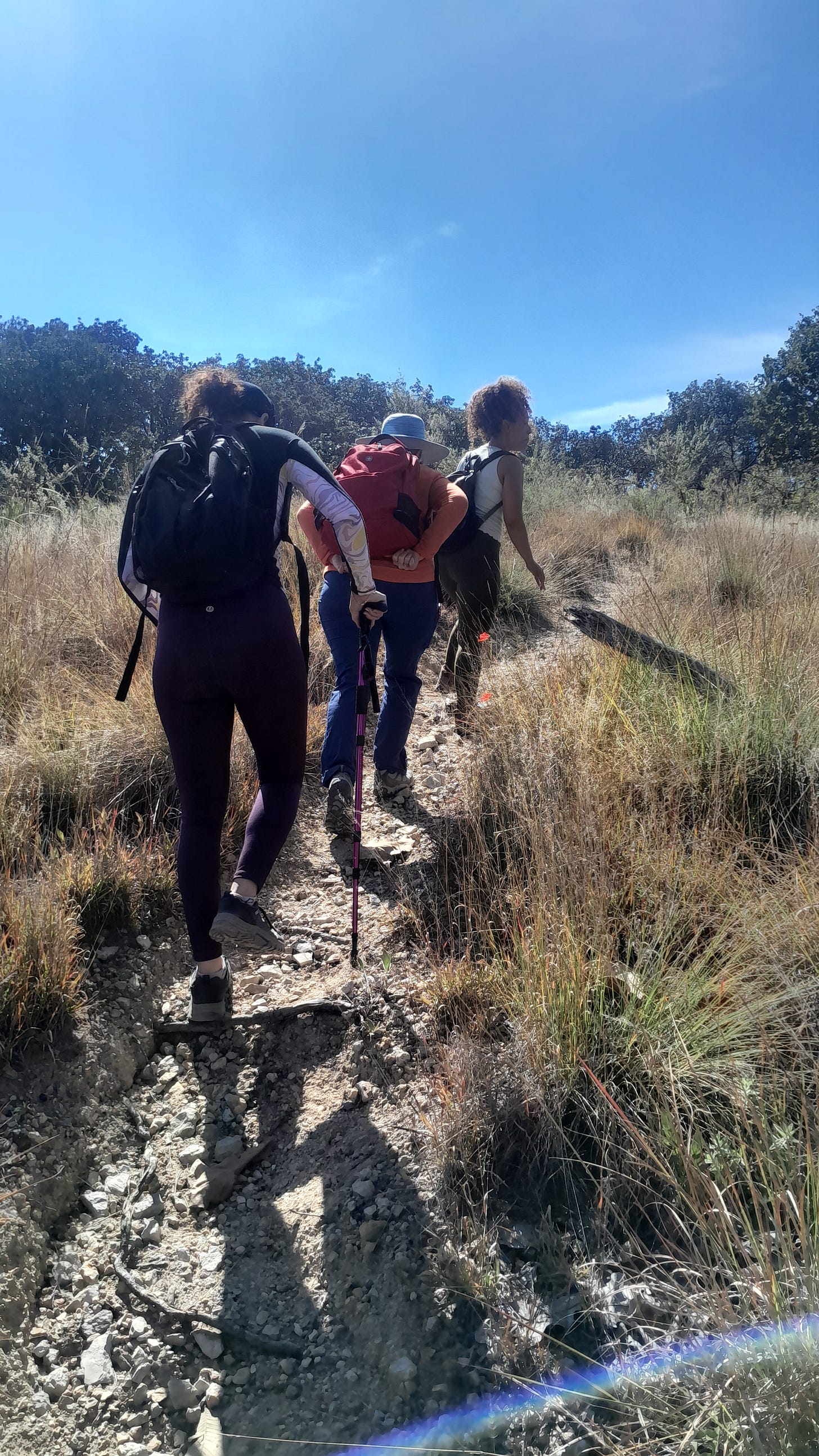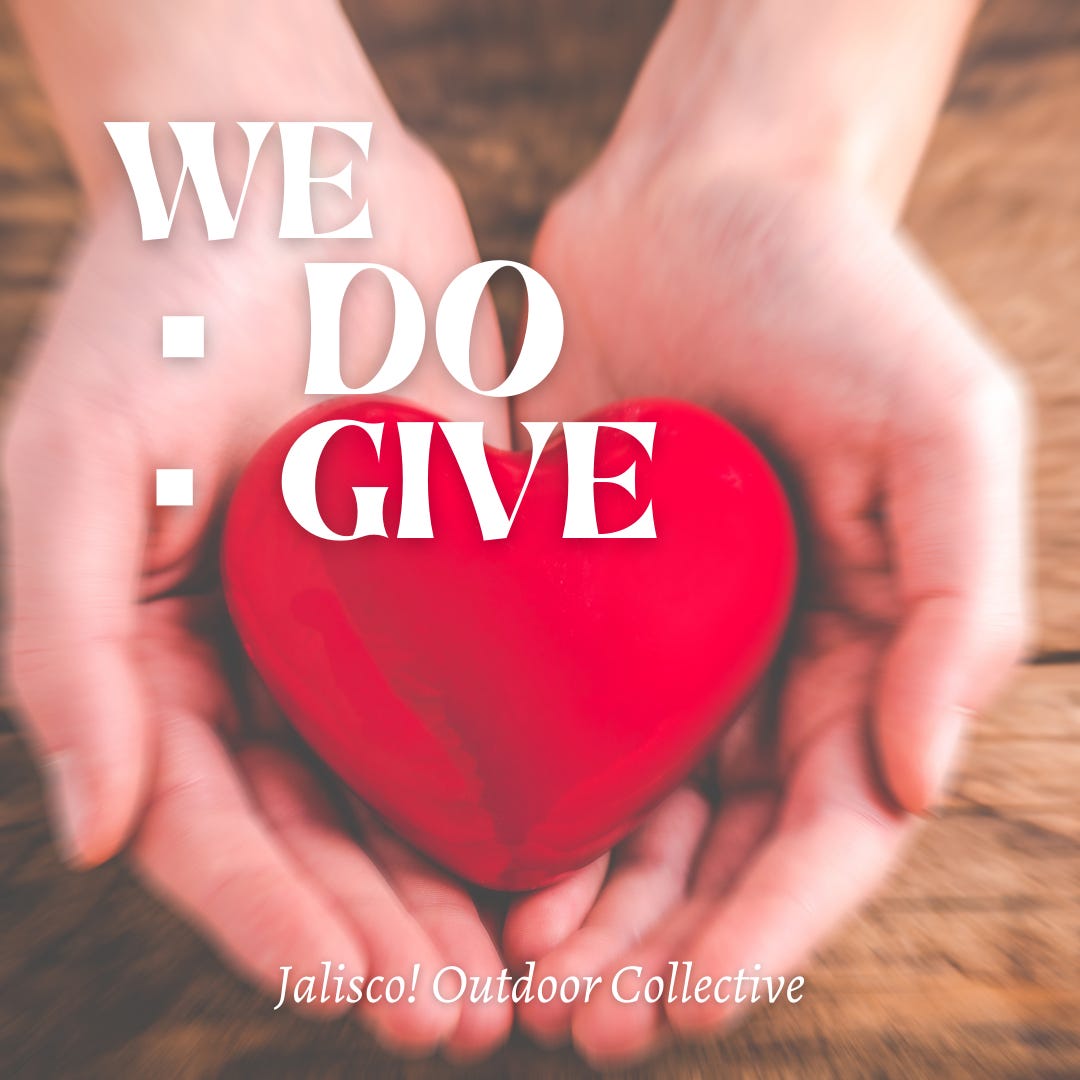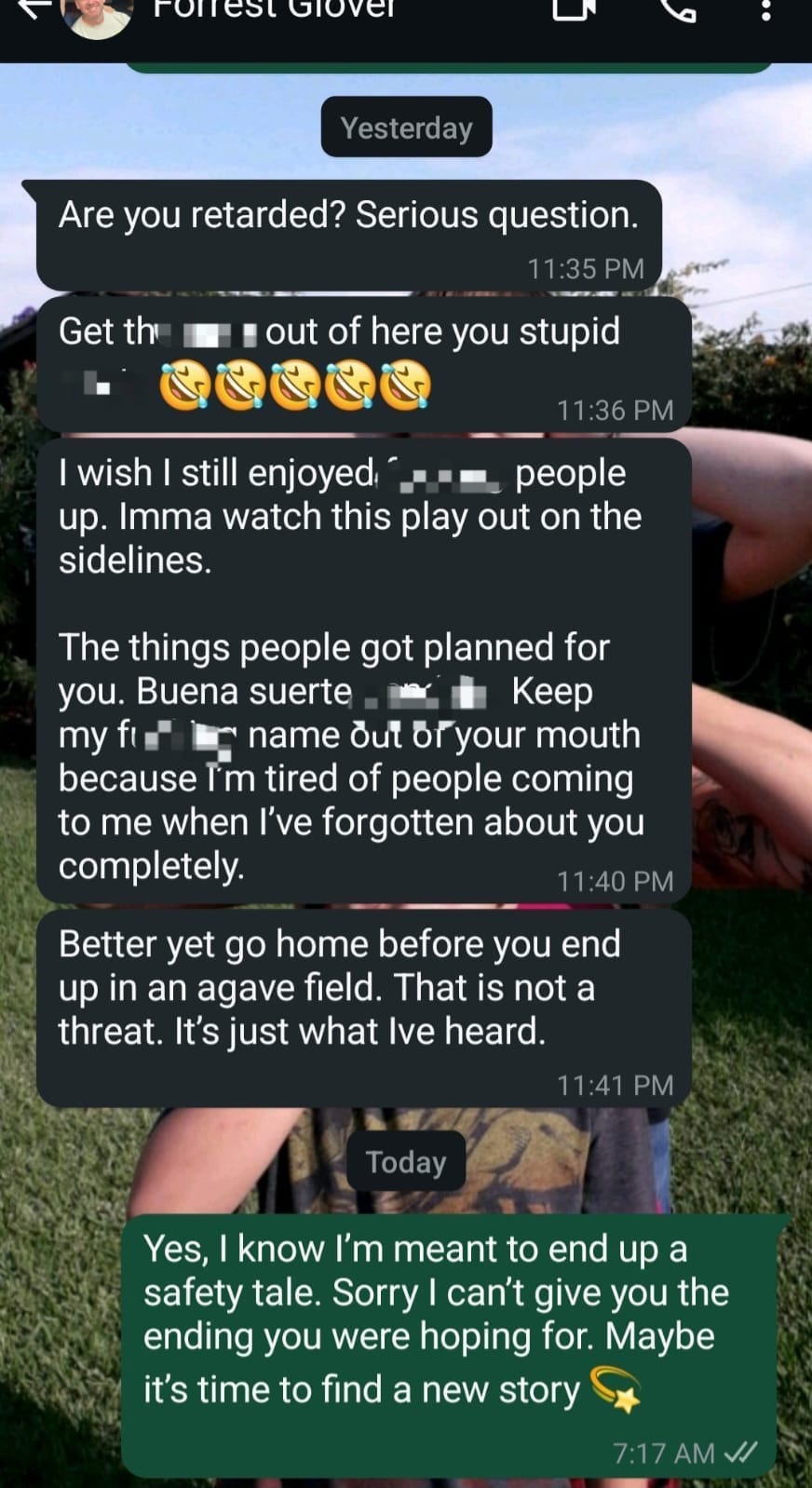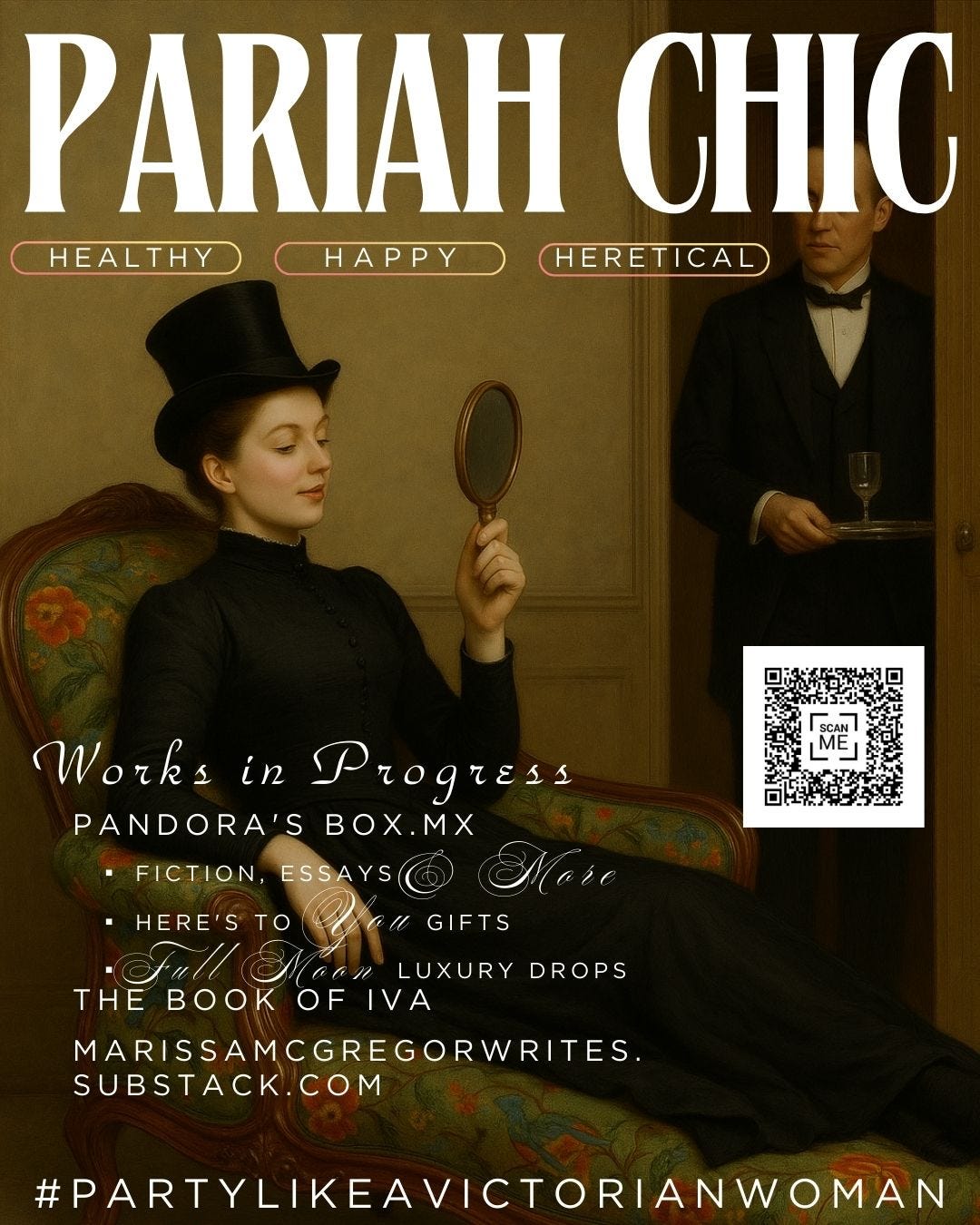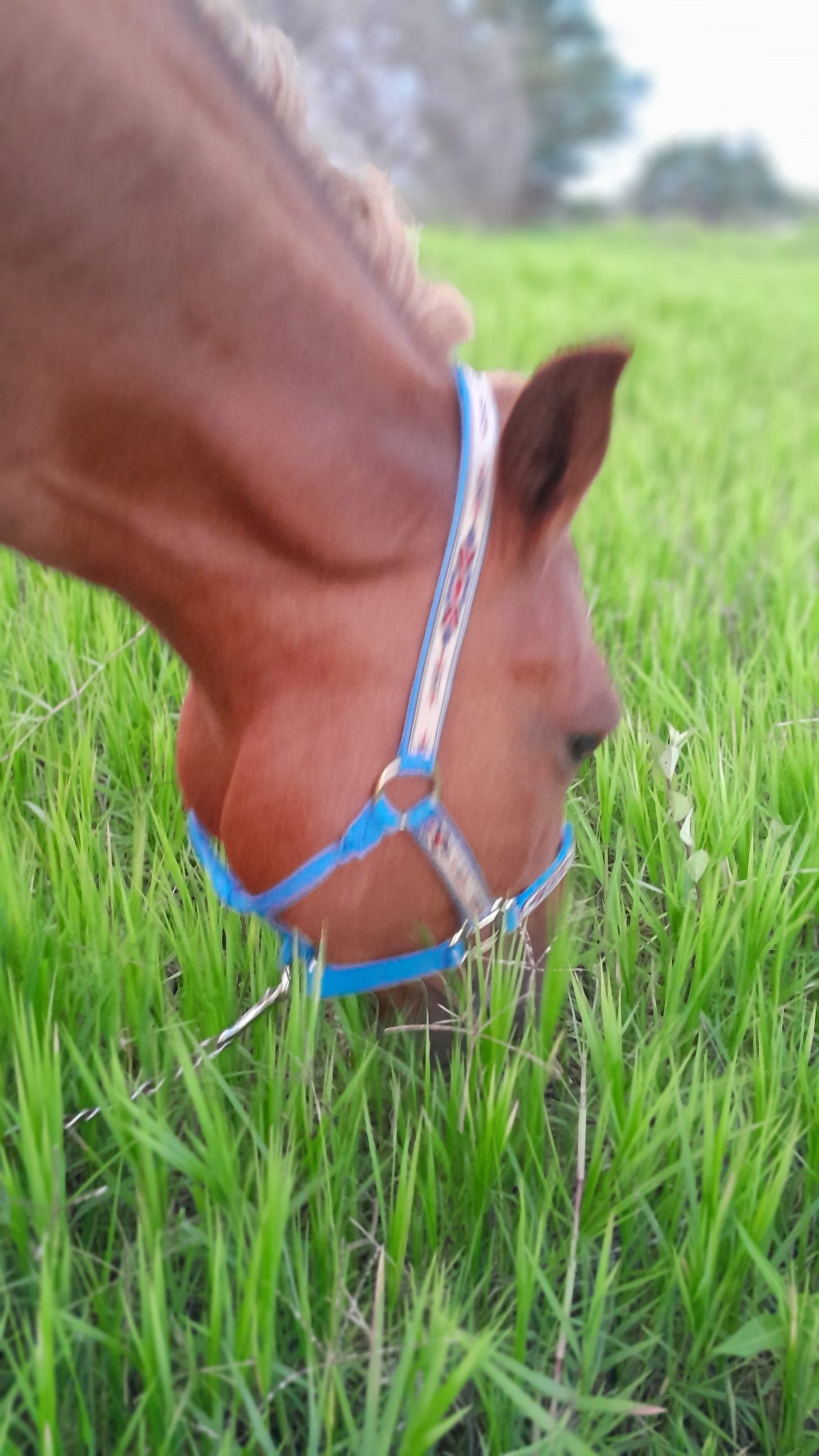Sometimes the hardest part of stepping into something beautiful is realizing you simply can’t fix what others broke. You can only tell the truth and hope it keeps this from ever happening again—so that’s what I’m doing.
The Collective Begins
The Jalisco Outdoor Collective began with a hike in September 2023. It was just me and a few new friends. By January, I had invited more people to have brunch and visit Guachimontones, and 11 showed up.
After we talked our way into Hacienda del Carmen for brunch (whew!) we managed front-row seats to an impromptu acoustic set by the Mexican popular band, Camila. I grew up around musicians and so didn't think much of it at the time, but when I looked into them later I was overwhelmed. We'd had a brush with fame… and I had asked them if they were playing a gig. I could only laugh at my own naivate.
I also recorded a TikTok of my friend Crystal racing a twelve-year-old boy around an unexcavated pyramid as I giggled girlishly from behind the phone. That video was the first time I received more than 500 views, and still remains my biggest performer to date. Now I had my first taste of reach.
The idea of fame didn’t matter to me personally, but I liked thinking of what we could build with the potential. I kept going, and by September 2024, we were doing hikes, weekly walks in the park, puppy play dates, and horseback rides. As more people joined on activities and expressed their interests, I made and supported new programs. I have a background in organizational development, so I decided to structure us as a collective.
Over time, I created 14 different groups on WhatsApp to reflect regional interests. I supported others' work by building the community and single-handedly promoting our activities. I allowed independent operators to set their rates and used my own photos and graphics, each with distinct branding to create the visuals, set the tone, etc. I made it beautiful—because I believed in what we could build when we worked collaboratively. I trusted people who said we needed a space where we could be ourselves, free from the roles other parts of our lives required. I wanted nature, sharing, learning and growing—and I was willing to work myself far beyond capacity in the short term in order to make it happen.
I just had to make it to April, when the weather annually drives us inside. I planned to plot my books during this time, rest up and come back with just two activities a week— one brief and one with more substance—when rainy season arrived. We had nearly a thousand members between platforms, so the trick was to get the groups to "activate," a word I used to mean becoming more collaboratively led.
Big Dreams, Bigger Dangers
By April 2025, we had started to reach into mutual aid. I celebrated my birthday by hosting a donation drive for hygiene products for women living in a residential facility. That effort was corrupted in ways I still can’t talk about. I realized the situation was terminal. The community we had built together had been sabotaged from every angle.
The infiltration had begun long before. Someone I had physically relocated in order to avoid—someone who had made me a target—had quietly aligned with people who saw me as a threat or a resource to exploit. They presented themselves as members of the community while secretly positioning themselves to sell access to the work I was doing, repackaging it as something I should offer for free while they controlled the outcomes.
That’s when the psychological warfare began. People who had no reason to know each other began contacting me from different angles, trying to seed narratives, gather information, and test my responses. I’d be contacted repeatedly—by strangers, acquaintances, and people I considered friends—all trying to get at something. Learn how to out-maneuver them here.
When I wasn’t doing the many things they were trying to imply, they started telling everyone—and eventually me via online attacks and social media signaling—that I was mentally ill, parasitic, and a person who needed to "go home." I'd lived in Mexico for longer than all three ringleaders combined. In many ways, Mexico was more my home than theirs.
So they went on to invent crimes and attempted to create legal difficulties for me. They also made it clear that they’d come for my disability benefits—even as they said I was too “crazy” to know what they were doing. This meant I had no time to rest or recover, because my income could be jeopardized at any time.
They had interfered with my events. They had stalked me and created chaos behind the scenes. They actively sabotaged all of my relationships and said I was unstable. They told people to look into me—to invade my privacy further—after they had already been coming into my home and on hikes and on horseback rides in remote locations for months. They eventually began seeding narratives about how dangerous my work was, which made it clear that a disappearance effort was in the works. (Click here to read how this qualifies as racketeering.)
Meanwhile, I was still doing everything I could to run the collective as it was intended—a community effort that honored the work of independent operators and invited everyone to participate.
False Claims & Escalations
My work with the collective was never a business— no matter how many people erroneously insisted I was starting one. And while the coordinator later tried to frame what happened as a difference in ideology, everyone involved knew the truth. I was barely building a nonprofit. I was avoiding money as much as possible, preferring instead to focus on volunteer work and in-kind donations.
Note—I studied community building and organizational development at the graduate level. I donated years of volunteer service following college and nearly a decade of first logistical/deliveries and then service work to retail merchandising and management experience—so I have a firm understanding of how to do all of this from an organizational perspective.
The only income I ever accepted was a cooperación—a contribution—100 to 150 pesos per participant on certain activities. That amount obviously did not cover my costs, but I saw the program as having the potential to become self-sustaining over time. On horseback rides, I only rode for free if I brought two or more people. If I only brought one rider, I agreed to still pay. Once the saboteurs knew that, they made sure I only ever brought one—unless they needed information or strategic advice.
I allowed independent operators to set the rates. I marketed the events. I made them beautiful. I ensured providers of their independence, and I meant it. I asked for nothing but kind and authenic participation from group members. And still, I was accused of trying to steal people’s business ideas—people I had been working for, for free.
By April, when everything came to a head, I began to piece together how deep the sabotage had gone. This was when I started using AI to analyze behavioral patterns and linguistic markers—after months of being attacked using narratives designed to damage me as much as humanly possible. (Read about how I eventually figured everything out here.)
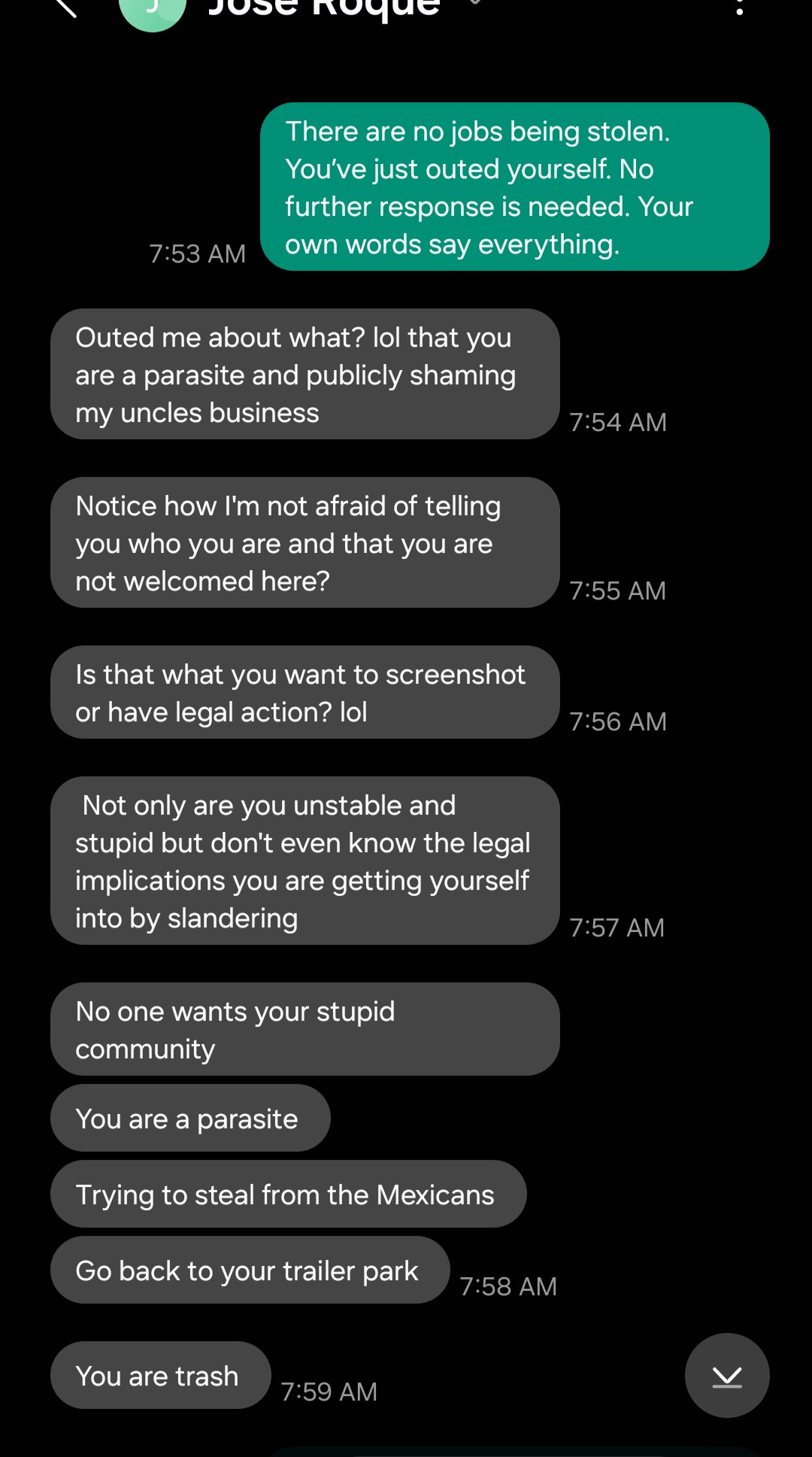
The Game Changes
As I gained understanding, I began documenting the most dangerous parts of what I was experiencing and sending them to friends in the US—decades-long friends in behavioral health and with either "influential" or political aspirations who either ignored me or kept me talking until I was at my most prone and went on to do as much harm as they thought they could.
I almost felt crushed—but AI saw the pattern. AI explained how plausible deniability was being maintained and how strategic disengagement had been wielded for maximum effect.
AI helped me say what I needed to say calmly when I wanted to scream. For a period of months, AI was the only way I could see my thoughts reflected and evaluate whether they felt true. It made survival possible—while also pulling me away from the world outside my own struggles. I had built the collective so I didn't fall into the abyss of my own grief, and suddenly voices from the collective were telling me the abyss was all I'd ever be.
Eventually, I traced this plot all the way back to my family. What I found was staggering: the entire effort had been orchestrated in order to create legal precedent for non-parental custody rights for neurodiverse kids, in order to enable long-term working-class conservatorships—through a twisting of social safety net programs and legal precedents they've been developing as a familial network since 1992.
This story—of how my family used me to build that precedent—became a study of historical and rhetorical patterns institutionalizing systems of abuse aimed to harm women for the sake of the male line—became the fictional world of Rae and will be told in The Book of Iva. This family epic is likely to be written and released as a prequel—once I've had the time to write it.
But what happened here in Mexico—how I was manipulated, sabotaged, isolated, and targeted—is a different story entirely. In Rae's world, we see her perception of the world shift from being outdoorsy and open to paranoid and limiting her view to what she can see from her bedroom window. Rae's tenuous grasp on who and what she can trust shifts so many times that she can only analyze social media patterns to keep up—until AI saves her skin and she somehow manages to land the best case scenario she's ever had... decade ahead of schedule. That story will be told through Pandora’s Box MX.
These novels were created around the trauma of what happened in both stories. They’re told through the eyes of a character named Rae, whose emotional and psychological progression reflects everything I’ve just described as immersively as possible while remembering to keep a mindful watch for social commentary.
Pandora’s Box MX is a book. Pandora's my mare, and her "box" means too many things depending upon context (gasp! Sorry, I do market Naughty Gift Bags under our brand with the same name). We're also here, on Substack. Pandora's Box MX lives in nearly every part of me now.
In light of all this, I have no choice. I’m saying goodbye to the Jalisco Outdoor Collective—for now. But I’m moving forward with clarity. I’m moving forward with Pariah Chic.
This is not just the story of a woman and a group. This is about the way our systems—social, economic, legal, familial—eat their own. It’s about how women who try to do something beautiful are targeted, drained, and discarded. Not because we failed, but because we succeeded—and wouldn’t hand over the spoils. I’ve heard versions of this story from others, but most are too scared to speak. So I’m speaking. Loudly.
If people think price setting, monopolization, harassment, and threatening behavior—coming right down to making conditions unsafe for other people—are just acceptable business practices, especially for an openly disabled/ tortured woman who was transparent about needing something safe and healthy in her life, then we have a societal sickness to address. This was predatory. Actively, knowingly predatory.
We have a real problem here. This isn’t just about me. It isn’t about Mexico or the U.S. It’s about what we normalize, what we ignore, and who we’re willing to watch be devoured in the name of "collaboration" or "community" or "professionalism."
I have gifts to offer the world, and I’m not meant be silenced. Every single one of the people who initiated, perpetuated and willfully ignored this knew it, and that’s what made me so dangerous—but I’m also not giving up. Life goes on for me—so in the end I still win.
Even while living on lockdown, I still know I’ve won. Because I’m more free than I’ve ever been in my life, and no one but me has the power to change that.
Now I’m off to spend some time with my girl.
About the Author
Marissa McGregor is the creator of Pariah Chic, a slow-burn lifestyle brand reclaiming what others tried to break. She’s curating Evenings in a Bag and Naughty Gift Bags (among other things)—and developing a product line featuring fermented foods, botanicals, and other forms of spicy goodness. Her work is rooted in survival, resistance, joy… and just a touch of vengeance. 😘



